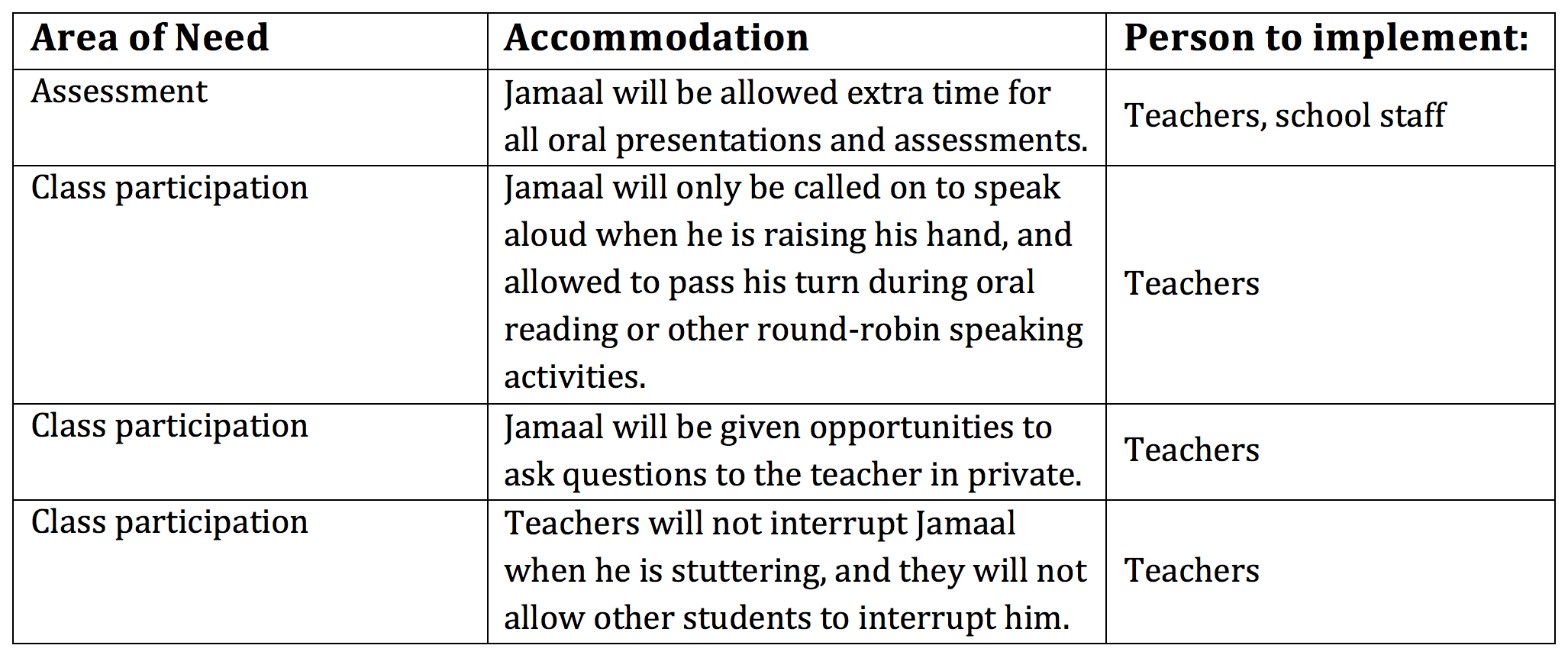

While some children who stutter may benefit from weekly speech therapy sessions through an IEP, not every child will need this type of support. If your child doesn’t have an IEP, there are still meaningful ways to ensure they receive appropriate classroom accommodations and are protected from discrimination.
The Rehabilitation Act of 1974 included a law (called Section 504) to protect people from discrimination based on disability, including students in public schools. The 504 Plan is a formal document that explains how the school and its staff will accommodate the student’s needs to be sure that the child does not have any unfair disadvantages because of their stutter. These accommodations are already included if a student has an IEP. Unlike Individualized Education Plans (IEPs), 504 plans do not typically provide speech therapy. Common accommodations include:
The key is giving students choices and making sure they aren’t penalized for stuttering while still meeting learning standards. Some may rarely use these accommodations, but knowing they exist builds confidence.
To request a 504 Plan, parents should submit a written request (with optional documentation from a doctor or speech therapist). Schools are required by law to accommodate eligible students, and children who stutter qualify because stuttering substantially limits one or more of their major life activities, including speaking and communicating, under Section 504.
Even if families face challenges or pushback, the most important step is helping children build confidence and resilience—so support comes not only from school, but also from within.

Reach out to us with any questions or concerns about stuttering and how to support children who stutter in any setting.